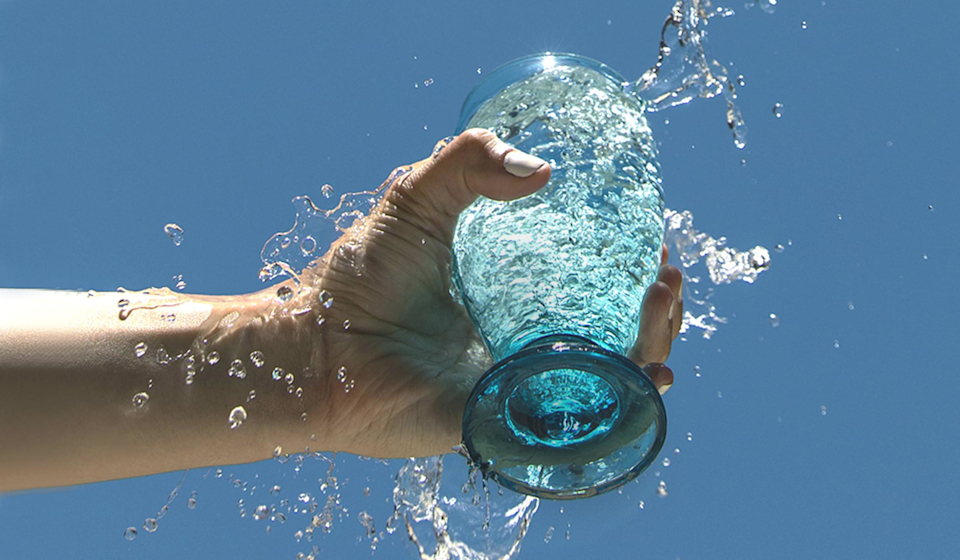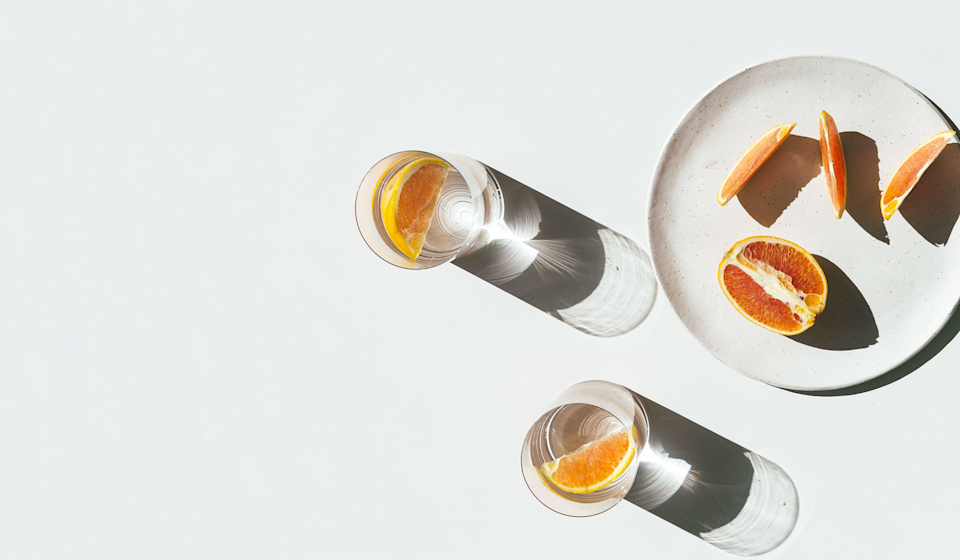On that note, kick your snooze button habit.
We get it—the urge to get just a few more minutes of sleep is too real. But some scientists and experts argue that hitting snooze on your alarm clock can actually make us more exhausted. Why? Because when we drift back to sleep, we might be easing back into the beginning of a new REM cycle, which is our restorative sleep state—and that’s actually the worst time to wake up, since our brain thinks that it was gearing up for a good rest again. (Talk about a rude awakening.) (3)
Our advice? Even if the first few days are rough, vow to get out of bed the moment your alarm goes off.
Start slow.
If waking up early is a struggle to begin with, then front-loading your day with a ton of activity probably isn’t going to make things any easier. To the contrary, a lot of the self-described “morning people” we speak to have one thing in common: They very intentionally start slow, so that they can take some time to really ease into their day.
What does that look like? For some, it’s taking their cup of coffee outside and just being alone with their thoughts for a few moments. Some will journal or write a few thoughts down; others use their breastfeeding time as an opportunity for quiet meditation. One even recommends menial chores like emptying the dishwasher—it’s a low-stakes activity that helps wake her mind up while she’s still groggy.
The point? Rather than pressuring yourself to hit the gym as soon as your feet hit the floor, maybe consider easing yourself into a morning routine with small habits that double as quiet opportunities to get back to yourself and start the day on a positive, centered note.
If you can, avoid social media and your inbox for at least a few minutes.
Putting off the realities of your day isn’t always a possibility, but that doesn’t mean you can’t take a little bit of time to just be alone with your thoughts, no matter how busy you are. And besides, checking your phone first thing can kind of put your brain into overdrive, which isn’t necessarily great if you’re trying to kick off your day feeling calm and collected. (4)
Move your body.
We probably don’t need to remind you that exercise is a science-backed mood booster. That’s all thanks to a boost in endorphins, which are neurotransmitters in our brains associated with feeling great. And you don’t have to log an intense morning workout reap the benefits, by the way—research tells us that even just going for a walk can suffice.* (5)
Log a nutritious breakfast.
We’d be doing your mom a disservice not to remind you that it really is the most important meal of the day. And that’s true not just for the physical benefits, but the mental ones as well: "It sets the tone for the rest of your day and can be integral for sound nutrition. It gets your mind and body going in a healthy way," says dietitian and maternal nutrition expert Jessica Diamond, MPH, RDN.
As for what to eat, studies point to a spread rich in protein, whole grains, and healthy fats for lasting energy (read: no 11am energy crash at the office). Diamond recommends overnight oats or a smoothie with fruit, greens, and seeds or nuts.* (6,7)
References:
- Lunsford-Avery, J.R., Engelhard, M.M., Navar, A.M. et al. Validation of the Sleep Regularity Index in Older Adults and Associations with Cardiometabolic Risk. Sci Rep 8, 14158 (2018).
- Duffy, J. F., & Czeisler, C. A. (2009). Effect of Light on Human Circadian Physiology. Sleep medicine clinics, 4(2), 165–177.
- Missone. (2019, March 8). Is Hitting the Snooze Button Bad for your Health? Retrieved from Cleveland Clinic
- Chun, J. W., Choi, J., Cho, H., Choi, M. R., Ahn, K. J., Choi, J. S., & Kim, D. J. (2018). Role of Frontostriatal Connectivity in Adolescents With Excessive Smartphone Use. Frontiers in psychiatry, 9, 437.
- Se, J., Jm, L., Ar, W., Vt, V. H., J, T., Rn, B., … Mn, W. (2019). Genome-wide association analyses of chronotype in 697, 828 individuals provides insights into circadian rhythms. Yearbook of Paediatric Endocrinology. doi: 10.1530/ey.16.1.1
- Harvard Health Publishing. (n.d.). More evidence that exercise... Retrieved from Harvard
- Harvard Health Publishing. (n.d.). Breakfast and your health. Retrieved from Harvard







